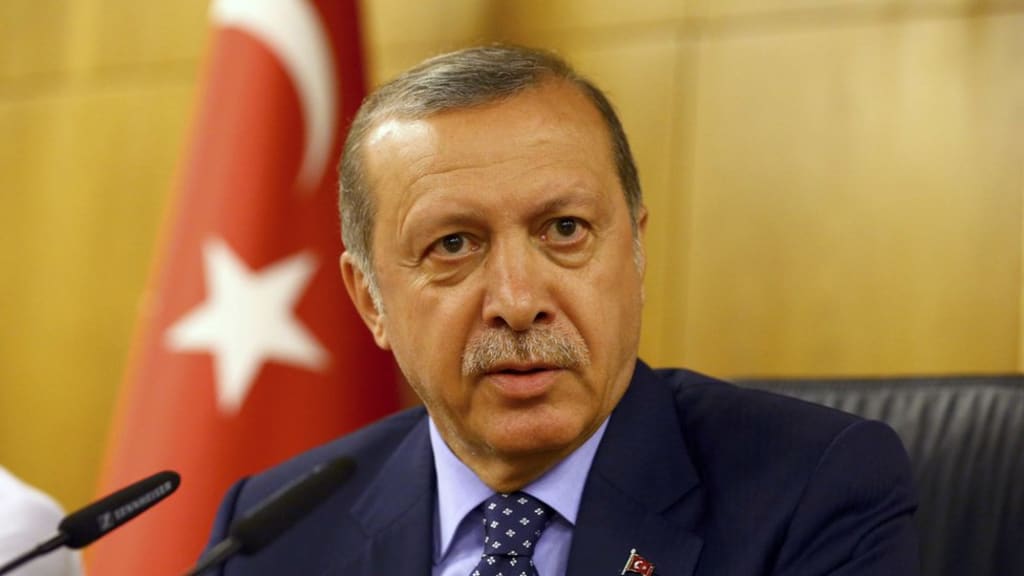
Recep Tayyip Erdogan, has been the undisputed leader of Turkish politics for the past 20 years. Despite having survived a dark and bizarre coup, tampering with the Constitution and chaotic economic policy that has devastated the country and devalued the lira, the Turks continue to bet on Erdogan. Under his leadership, Turkey has gone from being a tolerant Islamic democracy and an example of moderation to becoming an uncomfortable partner for both the European Union and NATO. Some consider that we are before the prelude to a new autocracy at the gates of Europe, while others see this as Turkey's final break with the West.
To understand how we got to this situation and what it all means, we must go back to the history of Turkey. After the Ottoman Empire's participation in World War I, in which they were part of the losing side, the victorious allies imposed the Treaty of Sèvres in 1918. However, this treaty was never ratified by the Ottoman government due to resistance led by Mustafa Kemal Atatürk, who led the Turkish War of Independence. As a result of this war, the Treaty of Sèvres was replaced by the Treaty of Lausanne in 1923, which established the modern borders of the Republic of Turkey.
During World War II, Turkey showed a double face in its foreign policy. It initially signed a protection agreement with France and the United Kingdom in 1939, but then turned to the Allies in 1941. With the onset of the Cold War, Turkey became a strategic point in the competition between the United States and the Soviet Union. . A comprehensive security treaty was signed with the United States, leading to extensive military aid to Turkey beginning in 1947.
However, Türkiye was also facing internal tensions. For decades, there was a dichotomy between state planning and market capitalism. The country experienced economic planning and control policies until the 1980s, when there was a shift towards the market and capitalism.
Turkey's geographical location as a link between Asia, Europe and the Middle East has been key in its history. Western institutions increasingly tried to integrate Turkey, and there were even times when it looked like it might join the European Union. It was in this context that Recep Tayyip Erdogan grew up and evolved, a man who found himself halfway between East and West, secularization and religion, capitalism and planning.
Erdogan began to rise to prominence in politics in the 1990s as the mayor of Istanbul. Contrary to his expectations, he showed a preference for the management and modernization of the city, promoting public works and new technologies.
.Continuing the response, Erdogan's pragmatic stance and ability to connect with the population allowed him to gain popularity and establish a loyal fan base. In 2002, he founded the Justice and Development Party (AKP) and became the Prime Minister of Turkey.
During his first years in power, Erdogan implemented political and economic reforms that were welcomed both inside and outside of Turkey. He focused on promoting economic stability, boosting growth and improving the country's infrastructure. This gave him credit as a leader capable of taking Turkey forward and improving the quality of life of the citizens.
However, as he consolidated his power, Erdogan also began to show a tendency towards authoritarianism. He used his influence to restrict press freedom, silence political opposition and consolidate his control over state institutions. Furthermore, he moved closer to a conservative Islamic approach to governance and began to promote a more dominant religious agenda.
Over the years, Erdogan has faced numerous controversies and challenges. In 2013, the country was rocked by a series of mass protests known as the Gezi protests, which originated in response to government plans to develop a park in Istanbul. These protests were violently suppressed and generated criticism both nationally and internationally about Erdogan's management and his government.
In 2016, Turkey suffered a coup attempt, which killed hundreds of people and left Erdogan with greater power after a massive crackdown on suspected plotters. This event had a significant impact on Turkish politics, as Erdogan used the coup as an opportunity to further consolidate his power and eliminate real or perceived opponents.
Erdogan's foreign policy has also generated controversy. Turkey has been involved in conflicts in the region, such as the civil war in Syria, and has been criticized for its military intervention in the Kurdish region of Syria. In addition, Turkey's relations with the European Union and the United States have become strained in recent years, due to differences on issues such as human rights, freedom of expression and the judicial system.
In short, Erdogan has been a polarizing figure in Turkish politics. Although he was initially seen as a promising leader capable of leading Turkey towards greater economic and political development, his rule has been characterized by increasing authoritarianism, restrictions on freedom and a controversial foreign policy. His dominance in Turkish politics has raised concerns both domestically and internationally about the future of democracy and rights in Turkey.





Comments
There are no comments for this story
Be the first to respond and start the conversation.